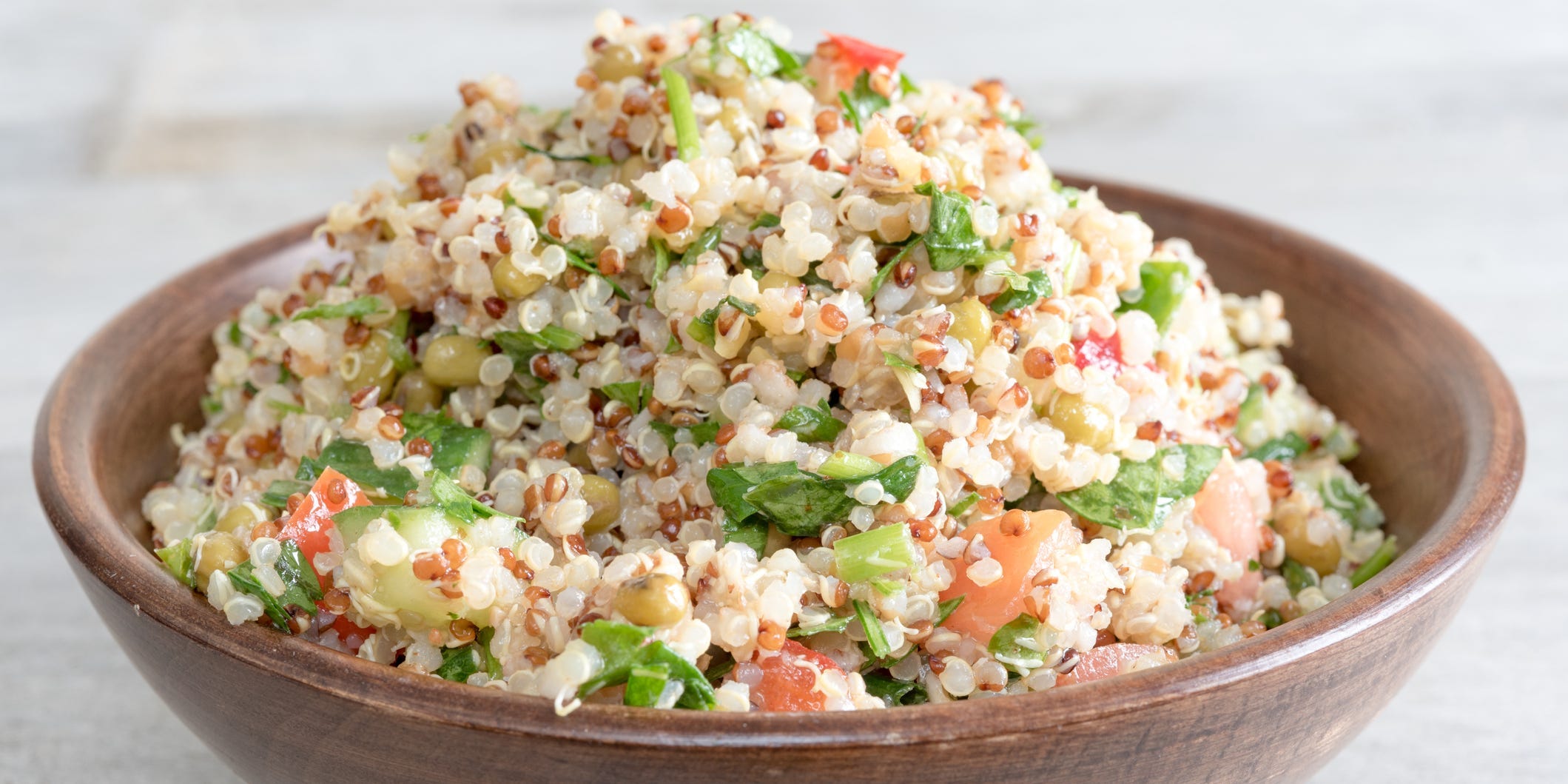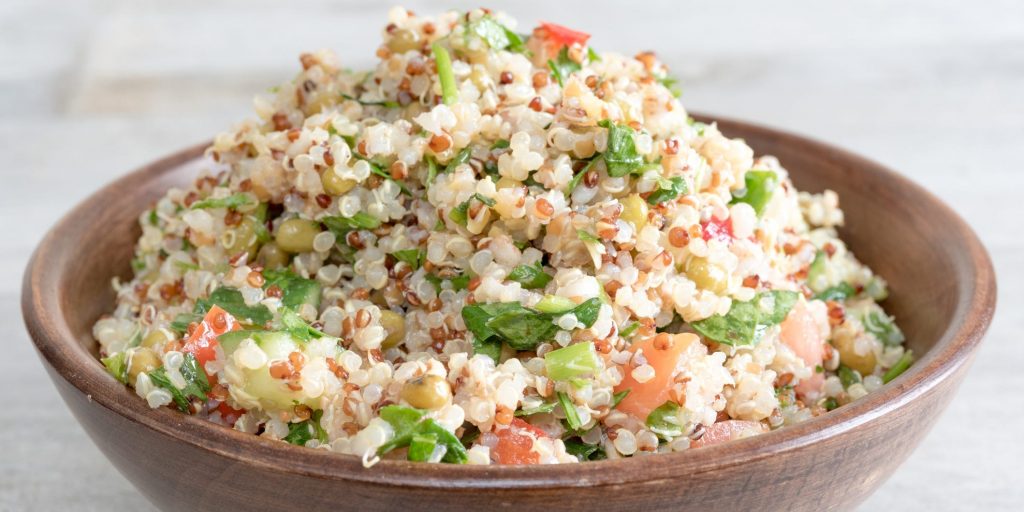
Roberto Machado Noa/Getty Images
- Quinoa is a gluten-free and vegan seed that resembles a grain and has a nutty flavor.
- Quinoa is highly nutritious and rich in protein, fiber, and antioxidants.
- To make quinoa, add two parts water to one part quinoa and boil until it's soft and fluffy.
- Visit Insider's Health Reference library for more advice.
As a high-protein, high-fiber vegan food, quinoa can be the star of a plant-based diet. While there's no such thing as a superfood, quinoa is packed with nutrients that provide important health benefits.
Here's more about this nutritional powerhouse, and how to add it to your plate.
What is quinoa?
Although it resembles a grain because of how it's prepared and consumed, quinoa is actually a seed, so it's vegan and gluten-free.
Once a health food store specialty, quinoa is now available in most mainstream grocery stores in one of three main types of quinoa: red, white, and black. Each type has a chewy texture and slightly nutty taste.
One cup of cooked quinoa contains:
|
Nutrient |
Amount |
Daily Value % |
|
Calories |
222 |
11.1 |
|
8.14 grams (g) |
16.3 |
|
|
39.4 g |
14.3 |
|
|
3.55 g |
4.6 |
|
|
5.18 g |
18 |
|
|
318 milligrams (mg) |
7 |
|
|
2.8 mg |
16 |
|
|
118 mg |
28 |
|
|
31.4 mg |
2.4 |
Quinoa also provides vitamins B6 and B12, as well as small amounts of copper, phosphorus, and zinc.
Quinoa's health benefits
Quinoa is packed with nutrients and chemical compounds that can support good health and reduce the risk of some chronic diseases.
1. High in protein
Quinoa has 8.14 grams of protein per cup, which is about 16% of the daily value (DV). Protein is essential for building muscle, helping you feel full, and boosting the immune system.
In comparison, one cup of brown rice has 5.54 grams of protein, or about 11% DV, and one slice of whole-wheat bread has 3.97 grams, about 8% DV.
Further quinoa has a higher amino acid digestibility score than similar foods like beans, lentils, and wheat, says Bradley Bolling, PhD, associate professor of food science at the University of Wisconsin-Madison
2. Great source of fiber
Quinoa is full of fiber with 5.18 grams, or about 18% DV in one cup.
Fiber may promote satiety, which can help with weight loss, says Patricia Sparks, PhD, assistant professor of nutritional science at the University of Arizona.
Moreover, about half of the fiber in quinoa is soluble fiber, which can help lower blood sugar and cholesterol.
3. Low glycemic index
Thanks to quinoa's high protein and fiber content, it also has a low glycemic index of 53.
In fact, a small 2018 study in England found men who ate quinoa-enriched bread for four weeks had lower blood glucose levels after four weeks than those who ate refined wheat bread.
4. Contains antioxidants
Quinoa is a notable source of phytochemicals, chemical compounds found in plants that also act as antioxidants. Antioxidants prevent cell damage from free radicals and can reduce inflammation.
Insider's takeaway
Quinoa is a vegan, gluten-free nutritional powerhouse, and an excellent source of protein, fiber, amino acids, and plant molecules called phytochemicals.
Research suggests its nutrients can fight inflammation, help you maintain a healthy weight, and help control blood sugar levels.
Plus, quinoa is easy to prepare, and pairs well with both sweet and savory whole-food toppings like fruit and vegetables.
